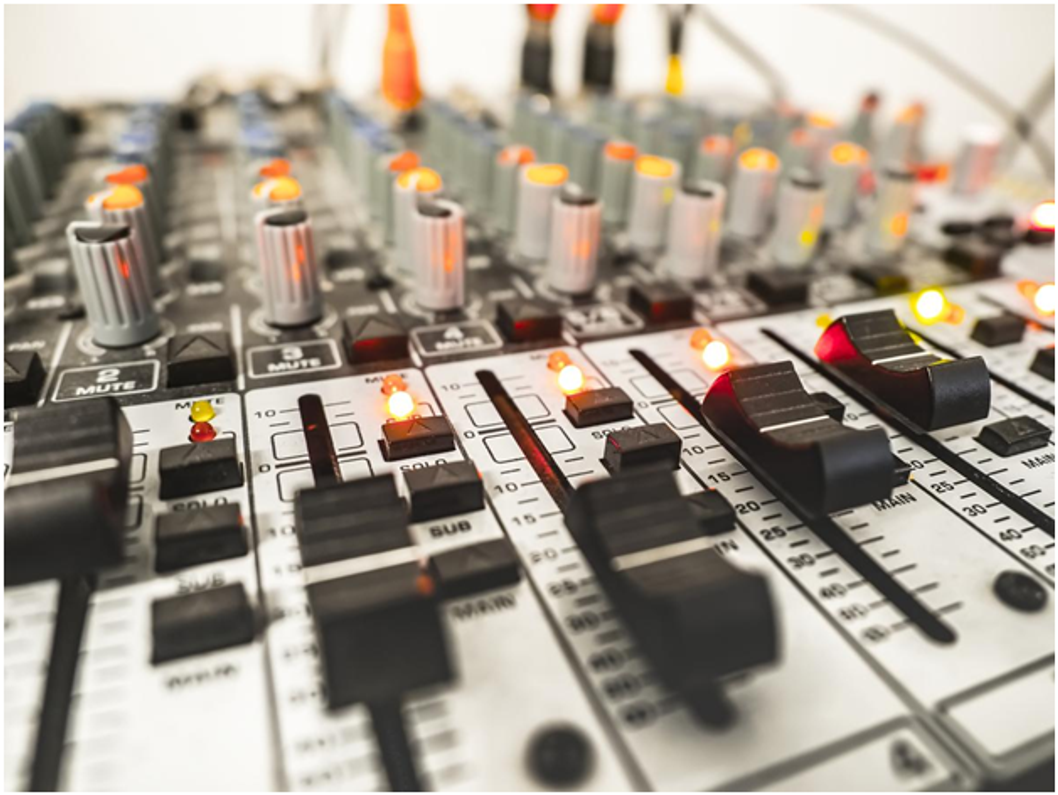Should I Get A New Or Used DJ Mixer?
Nothing beats the feeling of getting your hands on a new right out-of-the-box piece of hardware. Every button, fader, and feature feels responsive and you can't wait to show your crew all the amazing things your new gear can do.
However, after a certain point in our careers as entertainers and music producers, getting your hands onto something better than what you already have becomes prohibitively expensive. On the other hand, there are certain departments where an old reliable piece of equipment will do just fine. That's the case with DJ mixers.
DJ mixers used to be one of the most important items in a DJ´s toolkit. It was the neuralgic center of our deck, patching through all of our turntables and instruments, and sending the right levels to a powered amp, PA system, or master console. However, with the advent of newer all-in-one DJ controllers, mixers are not as important anymore. Musicians can just plug their laptops into the controller's USB port and keep everything under control from there.
That's not to say mixers are no longer needed. The mind of a DJ is always exploring new sounds and reimagining how tracks can be enhanced or taken to whole different levels of aural experience. That drive pushes many artists to play around with different instruments like MIDI pads to add beats on the fly, old vinyl turntables to experiment with vintage sounds and styles, and synthesizers to add their own flavor into the mix.
The problem is that most DJ controllers out there only offer a limited number of input channels. They usually only have a couple of USB ports, a headphone jack, a microphone input, and speaker outputs. So, hooking up anything else becomes a problem, unless you have a dedicated DJ mixer.
But mixers offer a lot more than just extra channels for your setup. A good mixer will help you kick your headroom up ten notches.
One of the biggest problems with most controllers nowadays is that they have cheap to a-ok preamps that regularly produce uneven microphone sound. Many controllers start distorting the signal or producing annoying feedback when you turn your mic levels up, so it is a constant struggle between clarity and power you don't want to face during a show.
The point of having a mixer is to have access to professional preamps and push your power up. A dedicated good quality mixer should be able to give you enough power and clarity before distortion, and still provide plenty of headroom. They also feature high-pass filters that can really make a difference when the venue forces you to wield a mic very close to your speakers, preventing unwanted feedback.
Your overall sound, whether it comes from your controller or your laptop, is also going to benefit from the added power of high-quality preamps.
When competing against the sound of very loud crows, DJs are always tempted to crank the volume up and hit the "red level". Remember, red is not turbo. Red means your sound is starting to come out distorted on the other side, and that you might be damaging your speaker drivers.
With a mixer, you can send a clean green signal into its preamp, and then let it do all the heavy lifting. This allows you to get the most out of your speakers without any distortion or red lights.
Mixers also grant a ton of flexibility as you will always have free channels for any possible or unexpected situation. When you are entertaining a wedding or a graduation, you need to be ready to take unusual requests from the crowd. It is not uncommon for party goers to want to use an extra microphone and turn the whole thing into a karaoke night. Sometimes the bride's brother asks you to let him plug his guitar and let him dedicate a song to the couple. You want dedicated channels for those and have the ability to make everybody sound good. You also don't want to mess up your carefully planned setup.
As a professional DJ, you might want to be ready to adapt to unique venues that require more than a pair of speakers to make everybody happy. Restaurants and bars sometimes have weird-shaped rooms where the sound of your FOH equipment can´t get. Just plug in an extra speaker to your mixer to make sure everybody is enjoying the party. You also want to retain control of your individual speakers to ensure your sound is even and you´re not piercing anybody´s ears in the next room.
But the question remains: should you buy a new piece of equipment or can you trust a used DJ mixer?
Mixers are very sturdy in general, and they don´t have as many delicate moving components as other elements of your DJ gear. That means that they can take a beating and still work like nothing happened if they´re well taken care of. For example, we have had amazing experiences with vintage mixers that look like they have seen rough times yet still deliver incredible sound.
The most important thing you have to keep in mind when buying a used DJ mixer, or any DJ gear for that matter, is to have it checked by experienced professionals before you commit to it.
Many musicians in Minneapolis and Saint Paul trust our dedicated DJ gear repair team when they're looking for used DJ mixers. They know they will get high-quality equipment that will help them deliver incredible sound for years to come.
If you´re interested in taking your sound to the next level, take a look at our selection of professionally restored or refurbished DJ gear.
Recent Posts
-
New Rental Gear is Here! Check out what we added.
MESA MEDIA MK2 PROX STAGE Q 2'x6' AND 2'x4' ROK-IT STANDS TRIPOD STUDIO BOOM CHAUVET EZ LINK PAR Q6 …May 28th 2025 -
Evolve 70 & 90 are on display and ready to demo!
Pre-order today and lock in your order! …May 7th 2025 -
Spring is sprung...look what it brung
…Mar 4th 2025




